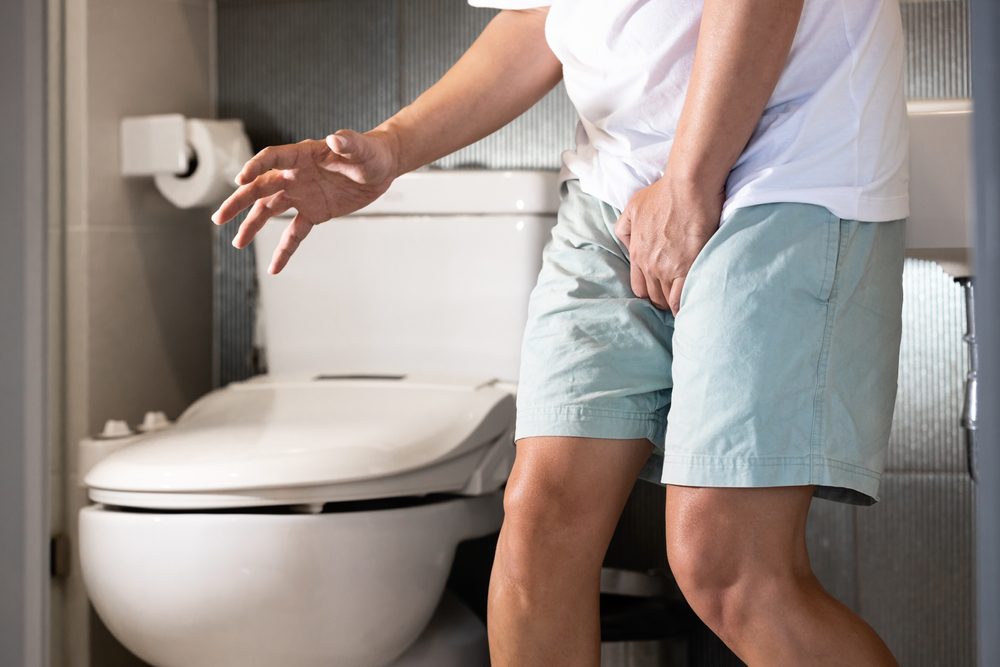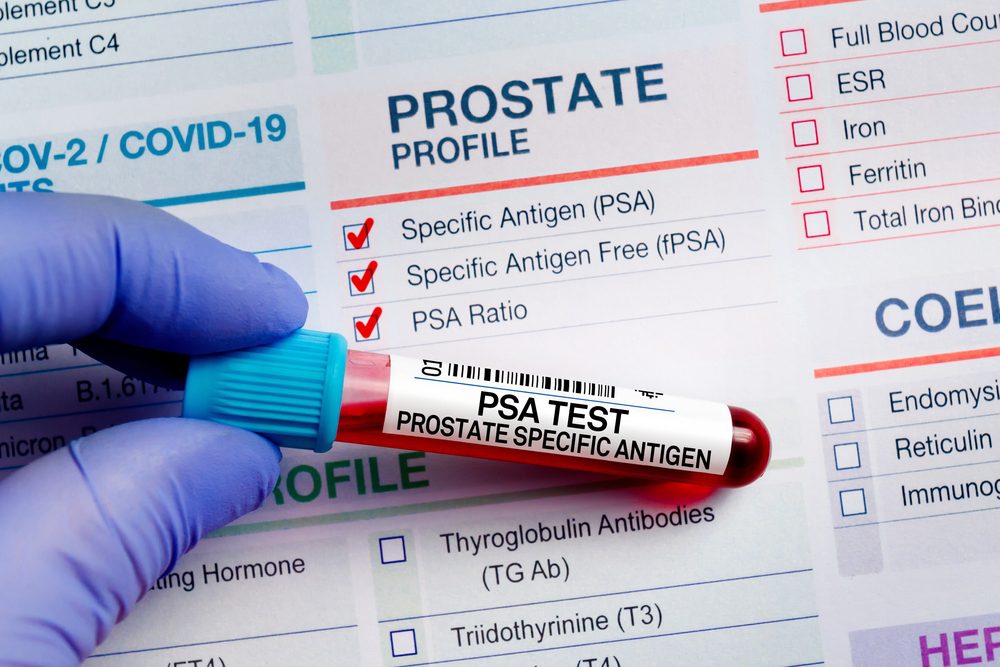Statistically speaking, by the age of 60, half of all men will have an enlarged prostate!
Urinary flow is subsequently restricted as a result of the prostate gland’s progressive growth pressing against the urethra. Numerous urinary issues arise from this. This is a frequent disease in which there is an enlargement of the prostate gland but no malignancy. Keep in mind that prostate cancer and an enlarged prostate are not the same thing.
Since this is a very sensitive topic and a lot of people shy away from it instead of being open about the condition itself, today Healthy Reads is our turn to tackle it accordingly. Let’s begin with the number one symptom.

1. Discomfort during urination
It might hurt when pressure builds up on your urinary tract and reproductive organs. Urine can be quite unpleasant for some guys because they feel compelled to push it out. In more extreme situations, an infection brought on by an ignored enlarged prostate may potentially be the source of discomfort.
One problem with an enlarged prostate is that it can obstruct the bladder’s urine flow, making it impossible for the bladder to empty. This raises the possibility of bacterial growth, which raises the possibility of infection. Treatment is required for prostatitis, an inflammation of the prostate that is also a type of urinary infection.
2. Urgency and frequency
An overactive bladder is a common source of wakefulness for many of us. While this may occasionally occur, men with an enlarged prostate are likely to pee more often than usual. Prostate issues, including an enlarged prostate, may first manifest as a persistent need to pee that keeps you awake at night.
This, let’s call it a “habit,” makes individuals urinate more than eight times a night. This condition is called nocturia. The urgent need to urinate during the night may be intense at times, mainly because the urethra and bladder are under more pressure due to the enlarged prostate gland, which makes it harder to hold in pee.
3. Difficulty in starting to urinate
While urgency and frequency are two of the main signs you have an enlarged prostate, difficulty starting to urinate is another warning sign. The problem with this particular symptom is that it is easily overlooked by the majority of men. Why? Let us explain the whole process.
Urine from the bladder that is meant to exit through the ureter may become blocked by your prostate’s pressure on the urethra. That’s why it’s tough to initiate a urine stream and cause you to become unable to pee. Additionally, it may result in a weak or sluggish urine flow, particularly after urination. The term for this condition is “dribbling urine.”
4. Urinary retention
When the bladder cannot be fully emptied, it might cause urinary retention. It is a sign of an enlarged prostate as well as a problem. If you have this problem, you should get medical attention very soon. Urinary retention comes in two types: acute and chronic. Whereas chronic urine retention persists over time, acute urinary retention passes quickly.
To empty the bladder of pee, the physician will need to place a catheter—a tube—into the bladder. If the condition is really severe, the urologist could suggest surgery to remove part of the swollen prostate tissue or create incisions in the prostate to potentially expand the urethra.
While an enlarged prostate can’t be avoided, the risk of developing prostate cancer can be reduced. You can do that by having a good diet and having an optimal body weight but also taking the necessary supplements to boost your bladder health.
This herbal blend dietary supplement made only with natural ingredients that are good for the prostate system is available on Amazon for $35. It contains 180 capsules that should be taken three times a day with food.
5. Blood in urine
Urine-containing blood may indicate an enlarged prostate. There are two kinds of this, which go by their names. Blood that can only be seen under a microscope is known as microscopic hematuria. When there is a noticeable amount of blood in the urine and it appears red, pink, or brownish, this condition is known as gross hematuria.
6. Sleep troubles
Your prostate may be the cause if you used to sleep through the night but are now often waking up to go to the bathroom. Ask your doctor for some tests and schedule an appointment as soon as possible.
7. Incontinence
The involuntary leaking of urine is known as urinary incontinence. This generally happens when the sphincter that controls the bladder is either weak or loses its control.

What are the root causes of an enlarged prostate?
Even if there were thousands of tests conducted regarding this condition, it’s still challenging to establish the specific “trigger” of it. On the other hand, there are some risk factors, and men who have one of these are more likely to develop it.
-
Family history
The risk rises by 1.3 times, for instance, if there is a family history of enlarged prostate. If this relative was under 60 years old at the time of the diagnosis, the connection is stronger. Furthermore, compared to dads, it is more pronounced in brothers who have enlarged prostates.
The likelihood of you developing this disease is almost 100% if your father or your brother had it before. That’s why it’s very important to take care of your prostate health if you notice changes in your urinating habits and frequency.
-
Unhealthy lifestyle (which includes a bad diet and a lack of physical exercise)
Numerous studies indicate that men who are obese are more likely to develop prostatitis and BPH symptoms. Others have an asymptomatic, enlarged prostate. Each study comes to the same conclusion, regardless of the term and methodology utilized.
It’s also very important to be mindful of what we consume. Although we’ve spoken about it a lot in our past articles, this is truly one of the most crucial life habits. The key to living a better life is eating a balanced diet rich in protein, healthy fats, and the required amounts of vitamins and minerals every day.
Don’t neglect yourself by saying, “Nah, I am too old for this” or something like that. It’s never too late to start taking care of your health!
-
Older age
It should come as no surprise that growing older is most likely the primary cause of certain illnesses. The enlarged prostate is another example of this. As you get older, your chance of prostate cancer rises. After age 50, it becomes more prevalent.
Conclusion:
The good news is that an enlarged prostate is treatable! A lot of guys react nicely to medicine. Prostate artery embolization is a targeted, minimally invasive surgery that can reduce your prostate and end your discomfort if the more conservative therapies don’t work for you. If, after reading these lines you suspect you have issues with the prostate, then you might want to request an appointment with your doctor.
We hope this was an educational article, as we never meant to scare you! We advise you to prioritize your health and seek professional help promptly if you notice any changes in your body.
You may also be interested in reading 12 Healthy High-Fat Foods You SHOULD Eat.

























